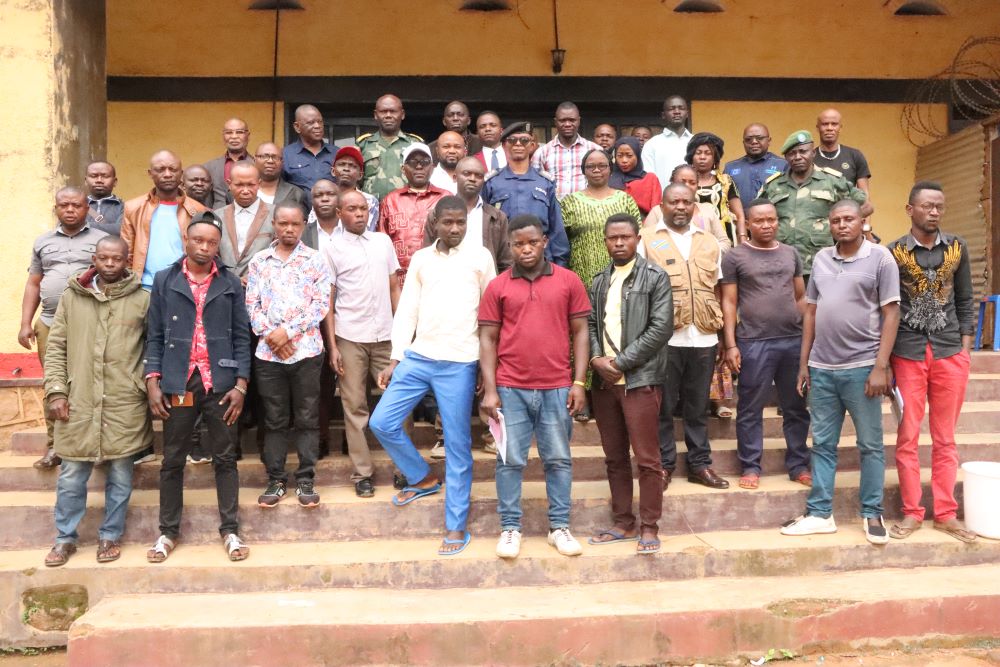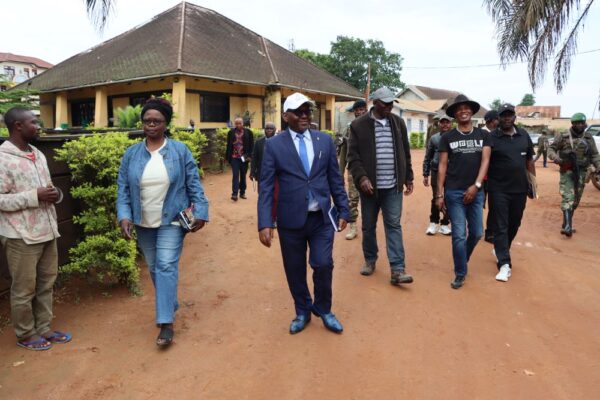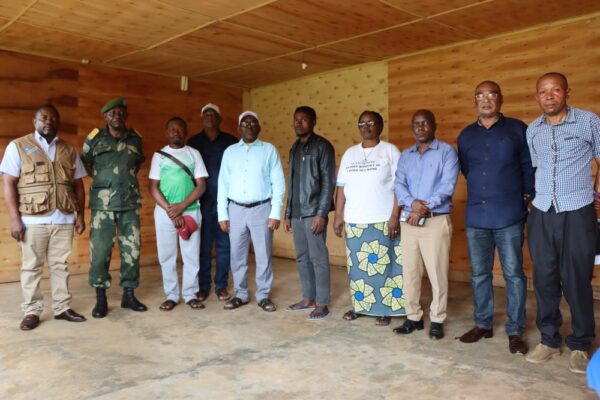Ituri: Mai Mai armed groups cease hostilities to join government programme-P-DDRCS

On the evening of Tuesday, March 28, an unusual atmosphere prevailed in the capital of the Mambasa territory in Ituri province. A strong delegation of six factions of the Mai Mai armed groups (a community-based militia group) made a historic decision to end hostilities and join the Disarmament, Demobilisation, Community Reintegration, and Stabilisation Programme (P-DDRCS). The signing of this act of commitment was witnessed by several political, administrative, and military authorities, as well as representatives of various segments of the community.
This breakthrough came after two days of consultation in Ituri, in the Democratic Republic of Congo (DRC), by the provincial coordination of the P-DDRCS, as part an initiative within the project “Support to Mediation for Resilience and Peace in Ituri and Greater North Kivu,” currently funded by the European Union and implemented by a consortium consisting of Interpeace, Action for Peace and Concord (APC), the Pole Institute, and the Centre for International Cooperation of New York University.
At the signing of the act of commitment, the armed groups of the Babila Babombi chiefdom emphasised that they were motivated by the Congolese government's call to restore peace and put an end to the many abuses suffered by the civilian population.
"We have seized the opportunity given to us by the Head of State in launching the call for demobilisation. We are committed to joining the P-DDRCS programme and the Congolese government unconditionally," said the delegation's spokesperson in his speech.
“This decision was made at the invitation of the provincial coordination of P-DDRCS during the two-day consultation meeting. We are armed groups that act only for self-defence. We want peace to return to our community," the spokesperson added.
Commitment by peace actors
For the provincial coordinator of the P-DDRCS in Ituri, Willy Abibo Sebo Maese, this act of commitment marks the integration of these armed groups into his programme. “The government will now take care of these groups, ensuring their safety and well-being,” he stated.
At the ceremony, Colonel Mwimba David, the representative of the 32nd main defence brigade of the Armed Forces of the Democratic Republic of Congo (FARDC), reassured the signatories and promised them the army's unwavering support throughout the process. Senior Superintendent Matadi Muyampandi Jean-Baptiste, the administrator of the Mambasa territory, called on all stakeholders to unite around this process to ensure lasting peace within the community.
The armed Mai-Mai groups, which come from six factions, have made several recommendations to ensure lasting peace. These include the employment of young people and the release and care of their fellow prisoners. The restoration of state authority in their entities, which have been invaded by the Democratic Forces and Allies (ADF), and the construction of a disarmament and demobilisation site in Mambasa are also among their wishes. In addition, they suggest suspending the activities of mining companies, which, according to them, create conflicts within the community.

Community systems welcome the commitment
The local civil society, along with the Youth Parliament, the Territorial Youth Council, and members of the community, expressed their satisfaction with the commitment made. They urged the armed groups to honour this pledge and uphold their responsibilities towards the community.
Marie-Noëlle Anotane, the acting coordinator of the Civil Society Forces Vives in Mambasa territory, commended the Mai-Mai entities for their commitment and called on other armed groups to follow suit. This sentiment was echoed by the head of the Mambasa Youth Parliament, Sulemani Onokoko, who praised the courage of the young people who left the bush and encouraged others to do the same or legally join the army.
During the two-day consultation leading up to the signing, approximately 50 participants were given detailed explanations of the national strategy of the P-DDRCS.

